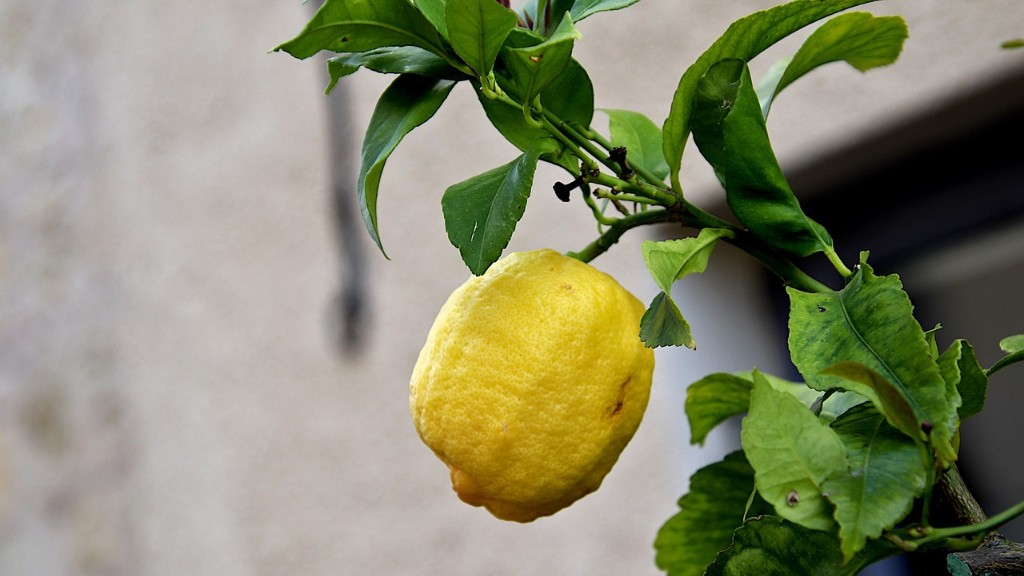Many home gardeners are dismayed to find their lemon tree is not producing fruit. There are various causes of this. Firstly, lack of pollination may be to blame. If the flowers of the lemon tree are not receiving visits from honeybees and other beneficial pollinators, the flowers will not be fertilized, and therefore, no fruit will be produced. Secondly, inadequate watering and fertilization can be an issue. Lemon trees need plenty of water and need to be fertilized with a balanced fertilizer mix throughout the growing season to ensure maximum yields of fruit. Thirdly, improper pruning can also lead to a lack of fruit. Lemon trees should be pruned lightly and only when necessary, as too much pruning can prevent pollination and fertilization of the flowers.
Fourthly, incorrect light levels may be an issue. Lemon trees thrive in full sun or partial shade, so inadequate light levels can prevent the tree from producing fruit. Additionally, if the tree is situated in a poorly ventilated spot, the flowers may not open for pollination. Lastly, the age of the tree can also affect fruit production – young trees often need several years to reach their full fruiting potential.
Soil Conditions
It is important to ensure that soil conditions for the lemon tree are optimal for growth. The soil should be well draining and fertile, with a pH level in the 6 to 8 range. If soil pH is outside of this range, the tree will struggle and will likely not produce fruit. Additionally, mulch should be applied occasionally around the base of the tree to help retain moisture and protect the roots from extreme temperatures.
Managing Pests and Diseases
Lemon trees are susceptible to a range of pests and diseases, which can reduce fruit yields. For example, spider mites, scale and whitefly are common pests that feed on the leaves and branches of the lemon tree, weakening it and reducing fruit production. Additionally, diseases such as citrus root rot and bacterial canker can also result in reduced yields. Lemon growers should be vigilant in monitoring their trees and look out for signs of any pest infestations or disease.
Crop Thinning
If fruit does begin to form on a lemon tree, it is important to practice crop thinning to ensure even ripening of the fruit and maximum yields. Crop thinning involves selectively removing fruits from the tree, leaving only the strongest and healthiest to develop. This allows the remaining fruits to get more nutrients and water, as well as more light exposure. Crop thinning should be done after the fruits have reached a certain size, but before they reach full maturity.
Fertilizer Schedule
In order to maintain the health of the lemon tree and maximize fruit yields, it is important to follow a regular fertilization schedule. The type of fertilizer used will depend on the age of the tree and the season – generally, a fertilizer high in nitrogen is recommended during periods of increased growth, while a balanced or high-potash fertilizer is best for fruiting and flowering. Fertilizer should also be applied in small amounts according to the instructions, as over-fertilizing can lead to excessive growth and reduced fruit yields.
Negative Effects of Frost and Cold
Finally, it should be noted that lemon trees are susceptible to cold and frost, and can suffer damage even at temperatures as warm as 29°F(-1.7°C). If a tree is subjected to weather below this temperature, buds and fruit my not form, and if the temperatures stay low for an extended period of time, the tree’s health may be affected to the point where fruiting is no longer possible. Therefore, it is important to keep an eye on the weather and take steps to protect young trees in the event of extreme temperatures.
